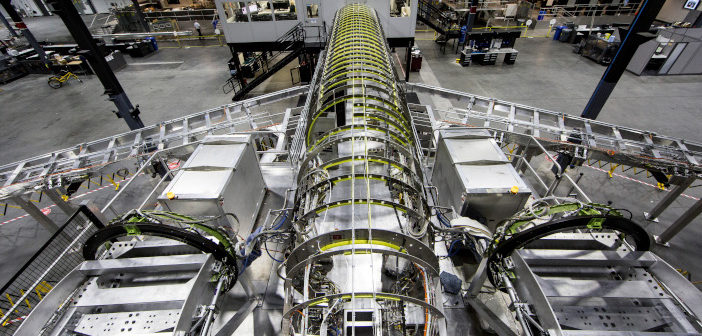An iron bird is a ground-based test device used for prototyping and integrating aircraft systems during the development of new aircraft designs.
Integration-tests Concourse tasks using fly execute, using a YAML test definition format.
brew install engineerbetter/tap/ironbird
$ ironbird --specs some_spec.yml,some_other_spec.yml --target eb [--timeout-factor <int>]
--specs- comma-separated list of spec files (see below)--target-flytarget on which to execute the tests, and for which there is already a valid auth token--timeout-factormultiplies the default or provided timeouts for execution. Useful if your Concourse is slower than that of the person who wrote the spec.
Concourse tasks should be tested, and there was no simple, succinct way to test simple tasks. No-one wants to write a hundred lines of Golang to test four lines of Bash.
See *_spec.yml files in integration for examples.
---
# Task config file (required)
config: existing_file_write.yml
# details of input that task config is normally within (optional)
enclosed_in_input:
# the name of the input containing the task.yml (optional)
name: some-repo
# where the 'root' of the input containing task YAML/script is, relative to this spec file (optional)
path_relative_to_spec: ../../../
cases:
# Each 'when' maps to a `fly execute` invocation
- when: modifier is specified
# timeout for fly execute (optional, defaults to 20s)
within: 1m30s
it:
# Expected exit code of fly execute (optional, defaults to 0)
exits: 0
# Ordered list of things to expect on STDOUT (optional)
says: [something printed to STDOUT]
# Define outputs to pull down (optional)
has_outputs:
- name: output
for_which:
# The following bash will be executed and asserted against
- { bash: "stat existing", exits: 0, says: "4096 0 0 existing" }
- { bash: "stat modified", exits: 0 }
# Additional inputs needed for this test (optional)
has_inputs:
- name: input
# Dir, relative to this spec file, to use as the basis for the input (optional)
from: fixtures/existing_file
# Bash commands to apply to either blank dir, or dir above, before running fly execute (optional)
setup: |
echo foo > modified
# Param values provided to the task (optional)
params:
CONTENTS: mycontents
FILENAME: myfileThe setup and bash scripts for inputs and outputs respectively do not run in a container and execute on the machine that ironbird was executed on, rather than in the fly executed container. Do not execute anything destructive, or that changes global config.
https://ci.engineerbetter.com/teams/main/pipelines/ironbird
The canonical reference for how to run the integration tests is the CI pipeline, but a (possibly out-of-date) copy is presented here for convenience:
# Get dependencies
go get github.com/onsi/ginkgo/ginkgo
go get github.com/onsi/gomega
# Login to a Concourse upon which to run the tests
fly login -t this -c ${concourse_url} -u ${concourse_username} -p ${concourse_password}
fly -t this sync
# Run the tests
cd integration
ginkgo -p -- --target this